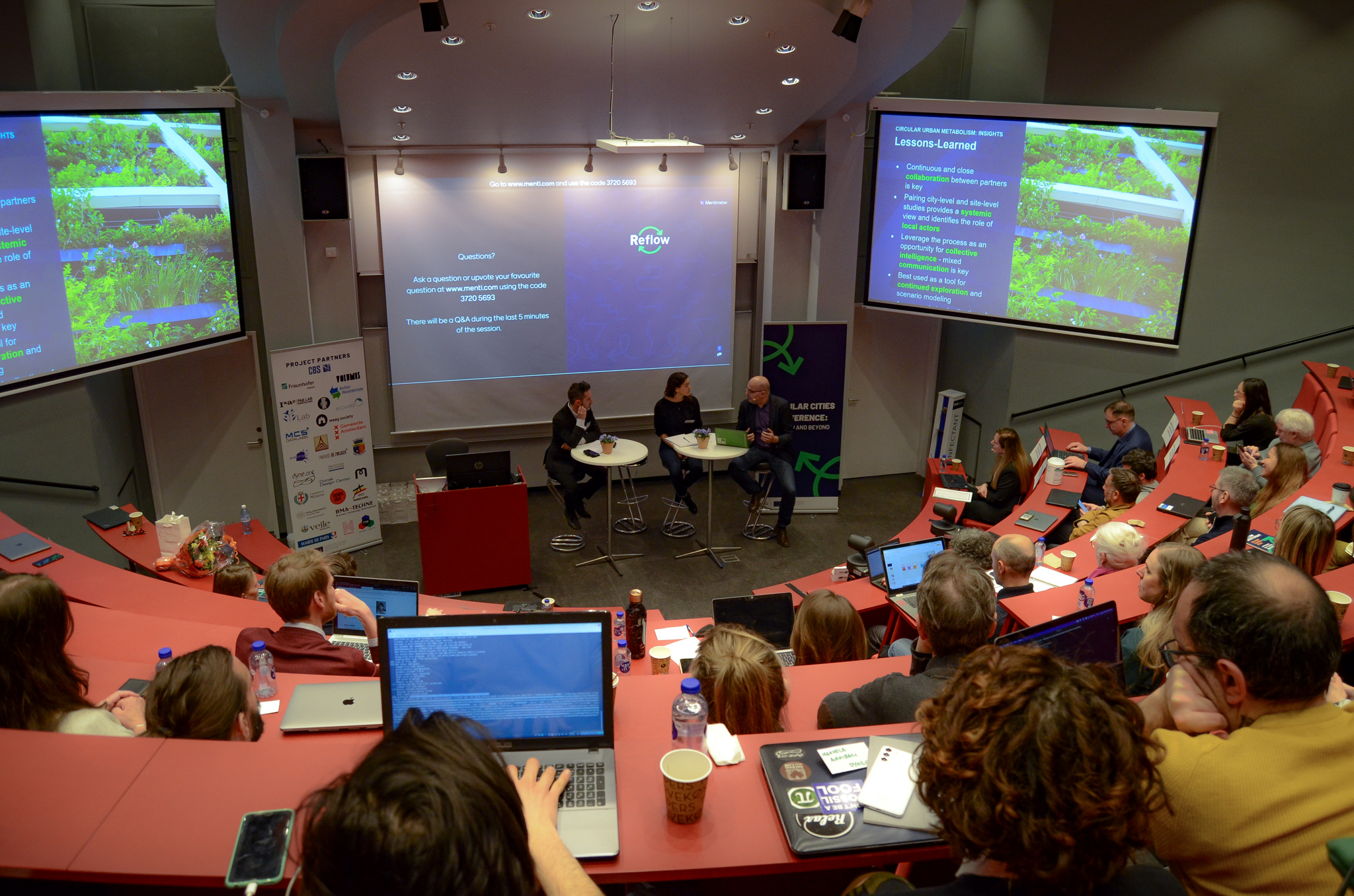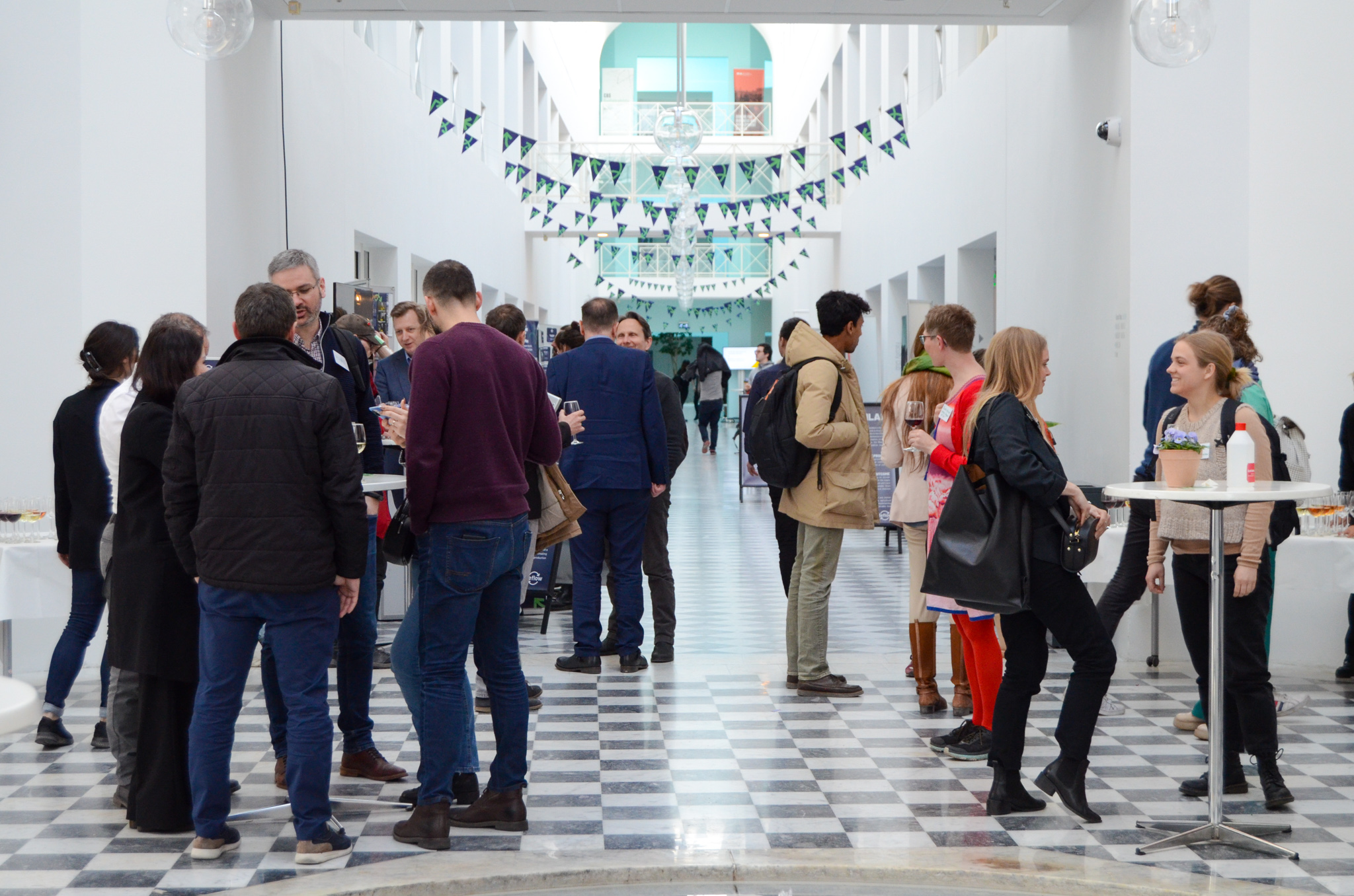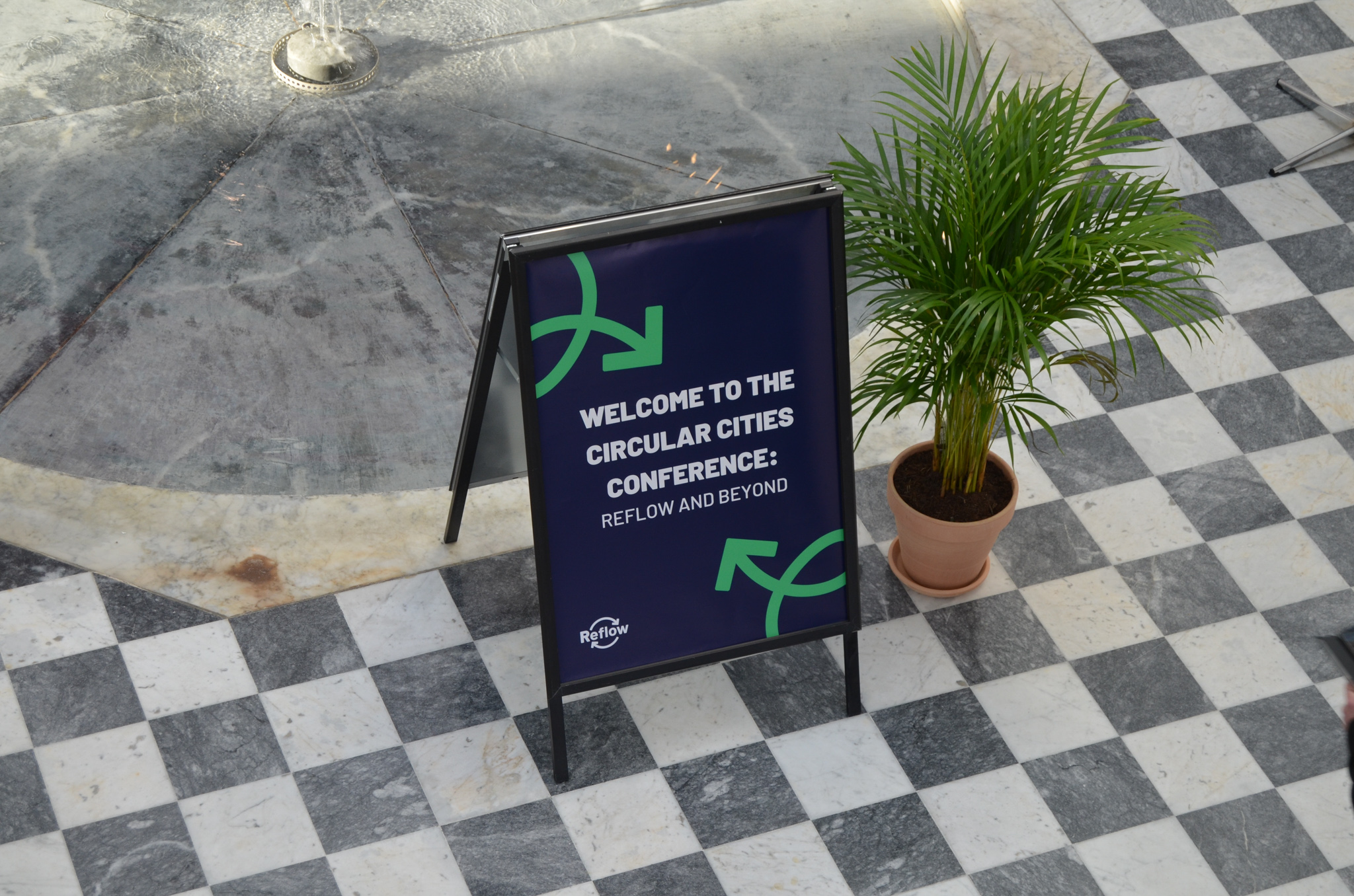An outlook on circularity: Reflow final event recap
PRESS RELEASE
The Circular Cities Conference: Reflow and Beyond
30th –31st of March 2022
Copenhagen Business School (CBS)
After three years of extensive work, the Reflow project is coming to an end. To celebrate the project’s results, outcomes, and legacy,?we organized a two-day conference with over 65 international speakers. During these two days, we shared the progress of the project and presented insights into the key methodologies used. Together with speakers and participants, we discussed the path forward for circularity in cities and gave an outlook on a circular future after Reflow. As a piece of the puzzle, we at Reflow are proud of what we have achieved together and trusting that we have managed to plant some seeds that will continue to grow. In this blogpost, you will read about the conference and how it relates to the bigger work on achieving circularity in cities.

Steering the transition through balanced governance
The transition to circular and regenerative cities requires a systemic shift that will be possible only if steered by public-private-people (& planet) collaboration.?
The first day of the conference was dedicated to the topic of governance. The focus hereby was the work, responsibility and power of different stakeholders and how it should be organized and distributed. The day started out with a panel discussion about the concept in general, focusing on how we can best balance the roles and responsibilities of all actors involved in the circular transition. The aim was to understand the different impact of stakeholders and how they should best work together to facilitate change in an urban context.
Then, we zoomed into the contribution of four different sectors: business, policy, citizens, and research. Each panel discussion was moderated by a representative of Reflow and engaged external experts and practitioners on the topic. In addition to exploring each topic in-depth, the discussion also included important questions on how to interconnect these sectors and facilitate a collaborative approach. Thereby, these individual sessions contributed to shedding light on the governance overall. Our conference guests got both a broad and detailed insight into the complex interconnection between relevant stakeholders and their actions.

The key outcomes of Reflow and their role in the continued work towards circularity
The second day of the conference was held in person at Copenhagen Business School in Copenhagen, and focused on the concrete work and outcomes of Reflow, both on work package and pilot level. The day alternated between bigger plenary sessions and smaller sessions held in parallel. Out of the many aspects of Reflow, three cornerstones were chosen and discussed in the plenary sessions: Urban Metabolism, Reflow OS, and Social Impact Assessment.
- Urban metabolism describes and quantifies the main resource flows (e.g., materials and energy) that enter a city, are used or stored, and then leave the city. In Reflow, the creation of such a detailed overview of the city’s impact provided the basis for prioritization of high-impact action. The roundtable focused on how we can make the best use of this approach to accelerate the transition to regenerative cities.?
- Social Impact Assessment is an attempt to measure change in ways that are relevant to the people or organizations that experience or contribute to it. Social Return on Investment (SROI) is a framework within the broader topic of impact assessment, translating social impact into economic value.?Reflow has relied on SROI as a measure of accounting for the created impact, and the roundtable explored the effect of using this framework – more generally the importance of effectively measuring social impact, and how it contributes to circularity.?
- Reflow Operating System, a key outcome of Reflow. The Reflow OS is designed to enable the transition to circularity through features such as matchmaking, material track and trace, “material passport” creation and publication for use in distributed ledger blockchain technologies. Reflow OS is therefore a foundational technical basis for web browser- and smartphone applications and platforms, to map and trace products throughout their life cycles. The session focused on how technologies can be used to enable and ease the slowing and closing of loops across organisational boundaries.??
In addition to these methodologies and the technological contribution of Reflow, the work of the Pilot cities on six different materials was highlighted during the parallel sessions. Each pilot had one session, where they presented their work in a Pecha Kucha format, before entering a roundtable discussion with experts. Here, guests, project partners and experts explored and argued how the local solutions can be scaled and replicated in a European context and can live on after Reflow.

Networking
An important part of the conference was also the networking and connections made in-between the sessions. After 2 years of pandemic, we wanted to make the conditions for participants and speakers to continue the discussions, exchange experiences and hopefully forge new and powerful connections. For this, the main square outside of the auditoriums was set up to inspire conversation between both old and new contacts throughout the day. Each pilot had a stand to show their prototypes and a monitor to show videos of their solutions, and both conference guests and students and campus staff passed by, allowing the conference and the results of Reflow to reach further.
Bringing the discussion to a more general and European level was a key aim of the conference. For the project it was crucial from the beginning, to utilize the locally developed solutions in a broader context. Only by that, Reflow’s results will reach their full potential. For this reason, the conference rounded up with a session on what will happen beyond Reflow. Luckily many other projects and initiatives are working towards the same mission and emphasize the importance of circular transition.? In this last session, we looked at the lessons we have learned, the solutions developed in Reflow, and how they can continue to impact the transition.
Overarchingly, the conference was a starting point to connect actors and inspire them to pick up the torch and continue the work beyond Reflow – as an outlook to a more circular future.